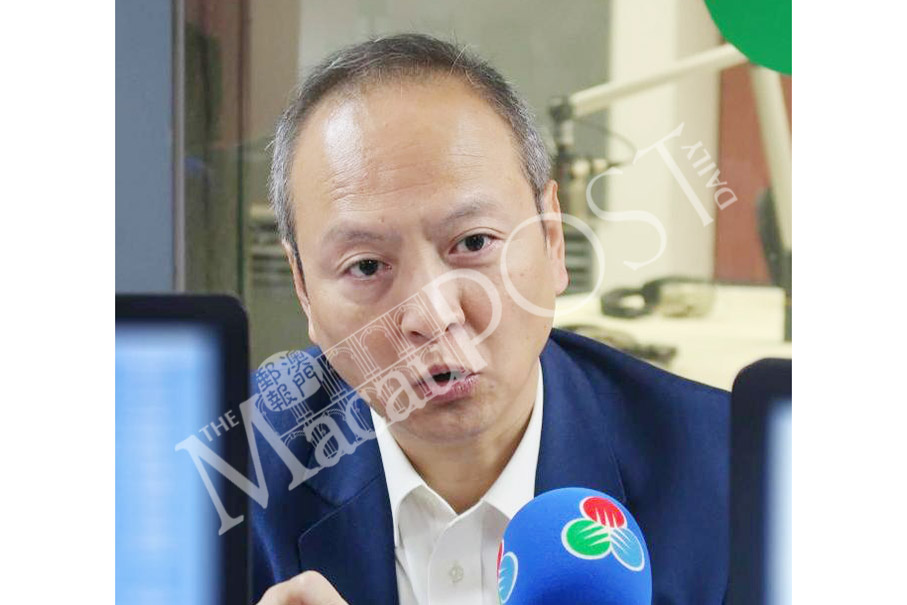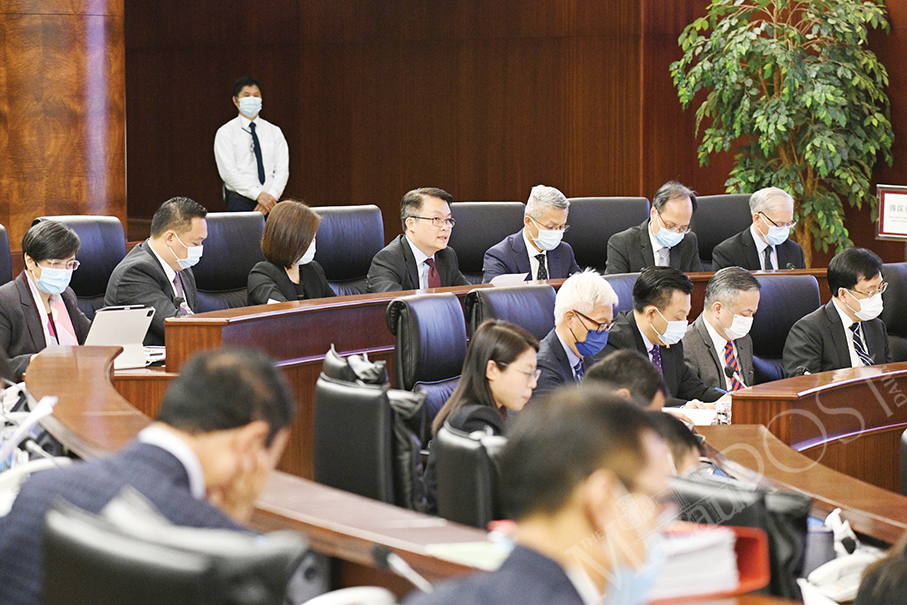Higher Education Bureau (DSES) Director Sou Chio Fai yesterday urged Macau residents enrolled in universities in Hong Kong to stay away from “violent incidents” and remain in their halls of residence, privately rented accommodation or any other safe place.
Sou made the remarks yesterday during a current affairs phone-in programme hosted by Ou Mun Tin Toi, the Chinese-language radio channel of government-owned broadcaster TDM.
Hong Kong has been hit hard by a wave of violence and vandalism by anti-government rioters.
In reply to a question by a listener expressing concern for the safety of Macau students enrolled in universities in Hong Kong, Sou said that his bureau was aware of the situation and keeping abreast of the latest developments in Hong Kong via various media outlets, with the aim of providing assistance if need be.
However, he was quick to point out that so far no Macau students in Hong Kong have asked his bureau for assistance.
Sou urged students from Macau in Hong Kong to put their own safety first, stay in their student quarters or any other safe place and always stay in touch with their family members.
Sou also urged them to stay away from “violent incidents”, heed the instructions issued by their universities, comply with class suspension and any other emergency measures.
Sou said that his bureau would keep in touch with student unions of Macau students in Hong Kong with the aim of understanding the “real situation” there, adding that Macau students in Hong Kong could always contact his bureau for assistance.Sou pointed out that more than 1,500 students from Macau are enrolled in tertiary education institutions in Hong Kong – including 345 at The Chinese University of Hong Kong (CUHK), which has become notorious for the rioting, arson attacks and vandalism by some of its students. Hong Kong police yesterday warned that CUHK may have become a weapons factory for radical protesters.
Patriotic education
Meanwhile, in reply to a call by another listener who said that Macau’s tertiary education institutions should put special emphasis on moral and patriotic education, Sou said that they have “gradually” been adding courses about the nation’s Constitutions and the Macau Basic Law to their undergraduate programmes “in recent years”, adding that Macau’s higher education institutions nowadays also regularly hold patriotic events at certain intervals such as raising the national flag and playing the national anthem.
Sou said that he hoped that local higher education institutions will carry out more measures to enable their students to understand the country’s extraordinary development achievements, adding that his bureau would provide more resources to encourage young local people to better understand their nation.
Meanwhile, during yesterday’s phone-in programme, Sou also acknowledged Macau’s remarkable achievements in the area of higher education over the past five years. Sou noted that more and more local pupils are enrolled in prestigious universities on the mainland. The ratio of teaching staff in relation to students in higher education institutions in Macau changed from 1 to 15.4 five years ago to 1 to 13.88 nowadays, Sou said.
Sou noted that the government spent 2.8 billion patacas on higher education in 2014, while the expenditure has been budgeted at 4.4 billion patacas for this year. Five years ago, one in three local residents in the labour market had a higher education qualification, while now 40 percent of local residents in the labour market have a higher education qualification, Sou said, adding this showed that tertiary education has become more popular in Macau.
Sou also said that more than 80 percent of local residents who have graduated from a local higher education institution or from a university outside Macau choose to work in Macau.

Higher Education Bureau (DSES) Director Sou Chio Fai speaks during yesterday’s phone-in programme hosted by government-owned broadcaster TDM’s Chinese-language radio channel Ou Mun Tin Toi. Courtesy: TDM










